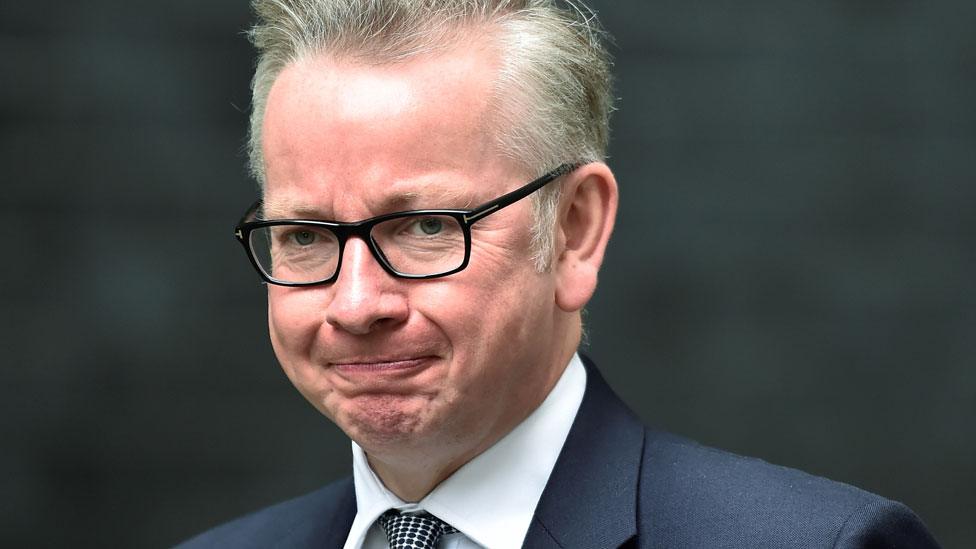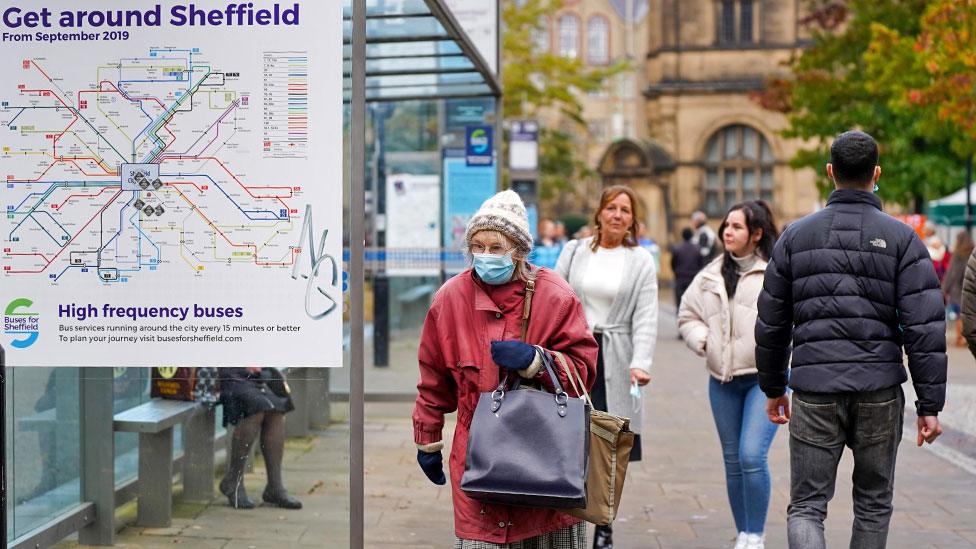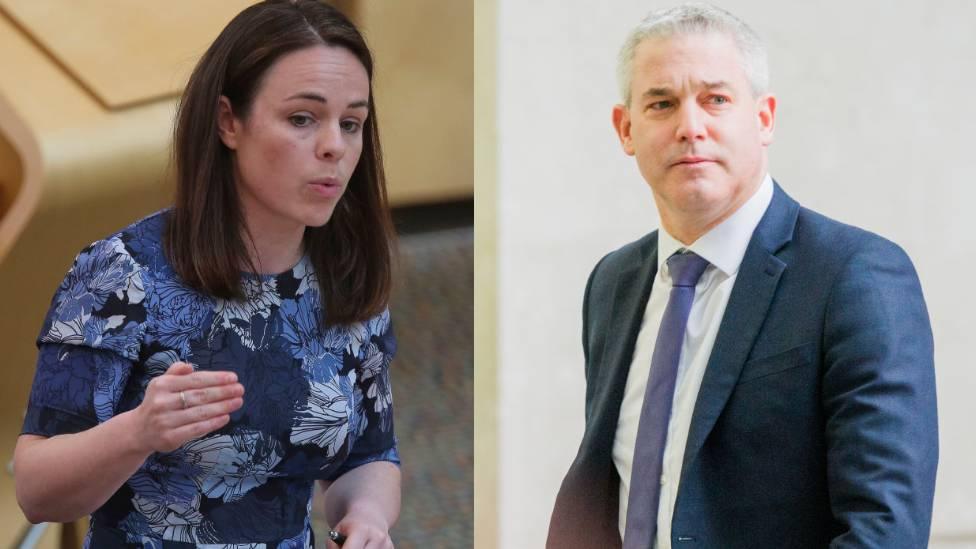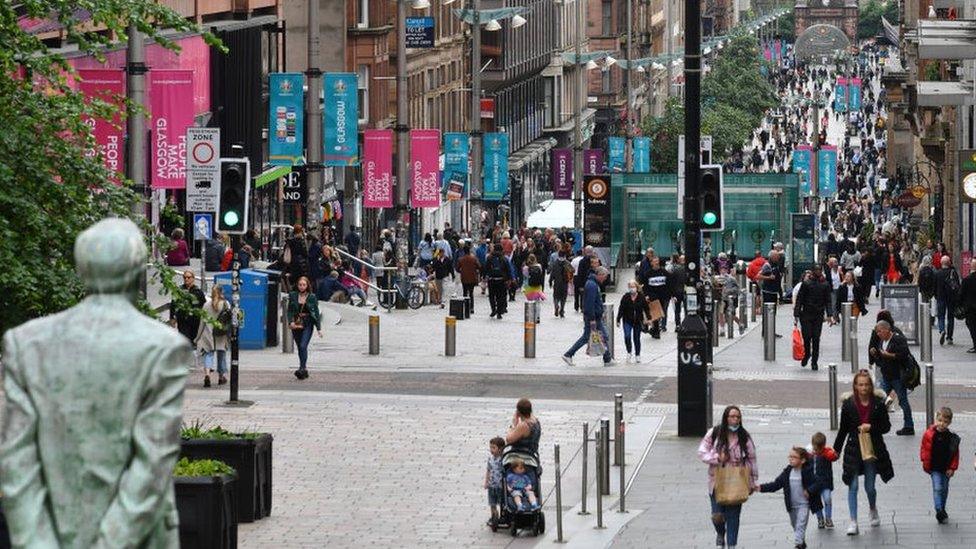Levelling up crosses the Scottish border
- Published

Glasgow is set to benefit from UK government "levelling up" spending
The UK government is setting out targets for the economy, education, health and wellbeing which go deep into devolved powers.
These have the potential to make the Scottish government accountable to Westminster for priorities set in London.
Scottish councils will have more to do with the UK government directly to access the levelling up funds.
"Levelling up" is stretching north and west into devolved territory, and by more than expected.
The UK government wants to build a new innovation and research centre in the Glasgow area as part of its levelling up plans.
A lot of the plan is about details in England, but it goes beyond the north of England constituencies that the Conservatives gained in 2019.
There was a promise that these new voters would be listened to, and the growing gap between London and the south east versus "The Rest", in so many indicators of the economy and quality of life, would be narrowed.
That is what drives much of the newly-published white paper on levelling up, not just in economic terms, but in health, education and the sense of pride in their towns that many say has been lost.
The money has been announced before, but the devolution of power within England could be significant.
This is the most comprehensive plan to push power out to regional mayors in every part of England, but only if people want them.
Experience of previous efforts to devolve in England, pushed by John Prescott to George Osborne, suggest that the English have large pockets of resistance to political power coming closer to home, preferring to see it as another unwelcome government encumbrance.
Islands forum
So what about Scotland, as well as Wales and Northern Ireland? The levelling up approach to policy upends a lot of what Whitehall has done for decades, and much of the 330-page paper is about reconfiguring the way spending is counted and perceived.
It sets 12 "national missions" and on most counts, the nation it has in mind is the UK. That means that it is pushing into education and health policy, setting targets to improve life expectancy and literacy.
As targets, they are uncontroversial. But if they can be agreed with the Scottish government, that would be the first time a devolved administration becomes accountable for targets set and measured at Westminster.
At Holyrood, MSPs are unlikely to welcome that, or to Michael Gove drawing attention to the ways in which Scotland has more ground to catch up, or of inequalities between the regions of Scotland.

Levelling Up Secretary Michael Gove has invited the first ministers of Scotland, Wales and Northern Ireland to join what he hailed as a "new collective effort to level up" the whole of the UK
Then there's the idea of an "islands forum", engaging with island communities around the UK, to consider shared challenges of transport, infrastructure, fuel poverty and the demography of young people departing.
That is among the vaguer proposals, which would also cut across devolved responsibilities.
Turf wars
Local authorities have shown themselves willing to work with Whitehall where funds are available to help secure local projects, from a local road in Renfrewshire to restoration of a historic water-powered sawmill in Glasgow.
If they are to gain from the Shared Prosperity Fund - the pot of cash given more detail alongside levelling up which is intended to replace European funds that used to be funnelled through Holyrood - Scottish councils will again have to deal with the UK government.
But where levelling up extends to devolved powers in Scotland and accountability to Whitehall ministers, it's hard to see targets or the island forum surviving the familiar constitutional turf wars between Westminster and Holyrood.
Related topics
- Published2 February 2022

- Published17 January 2021

- Published2 February 2022

- Published2 February 2022

